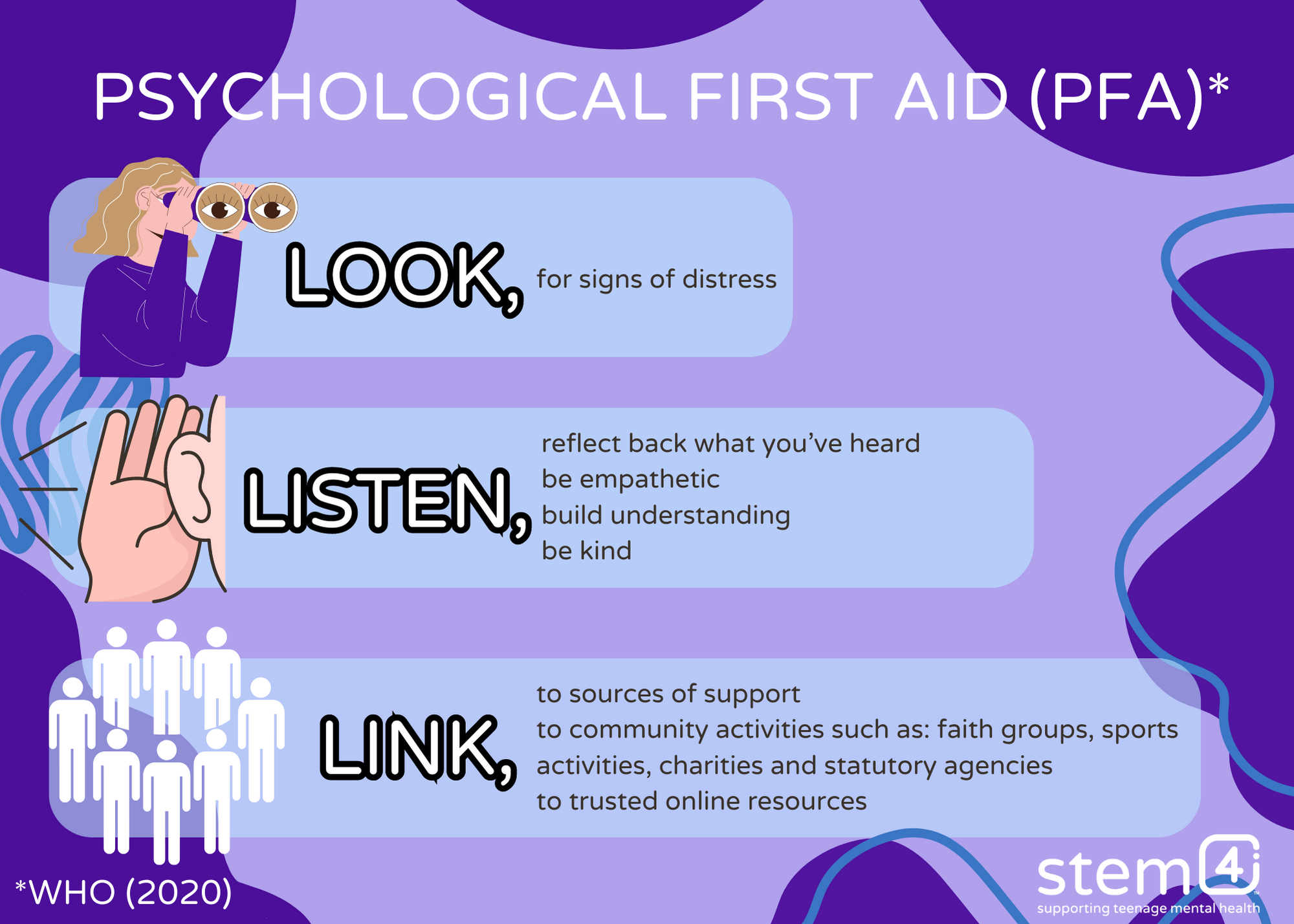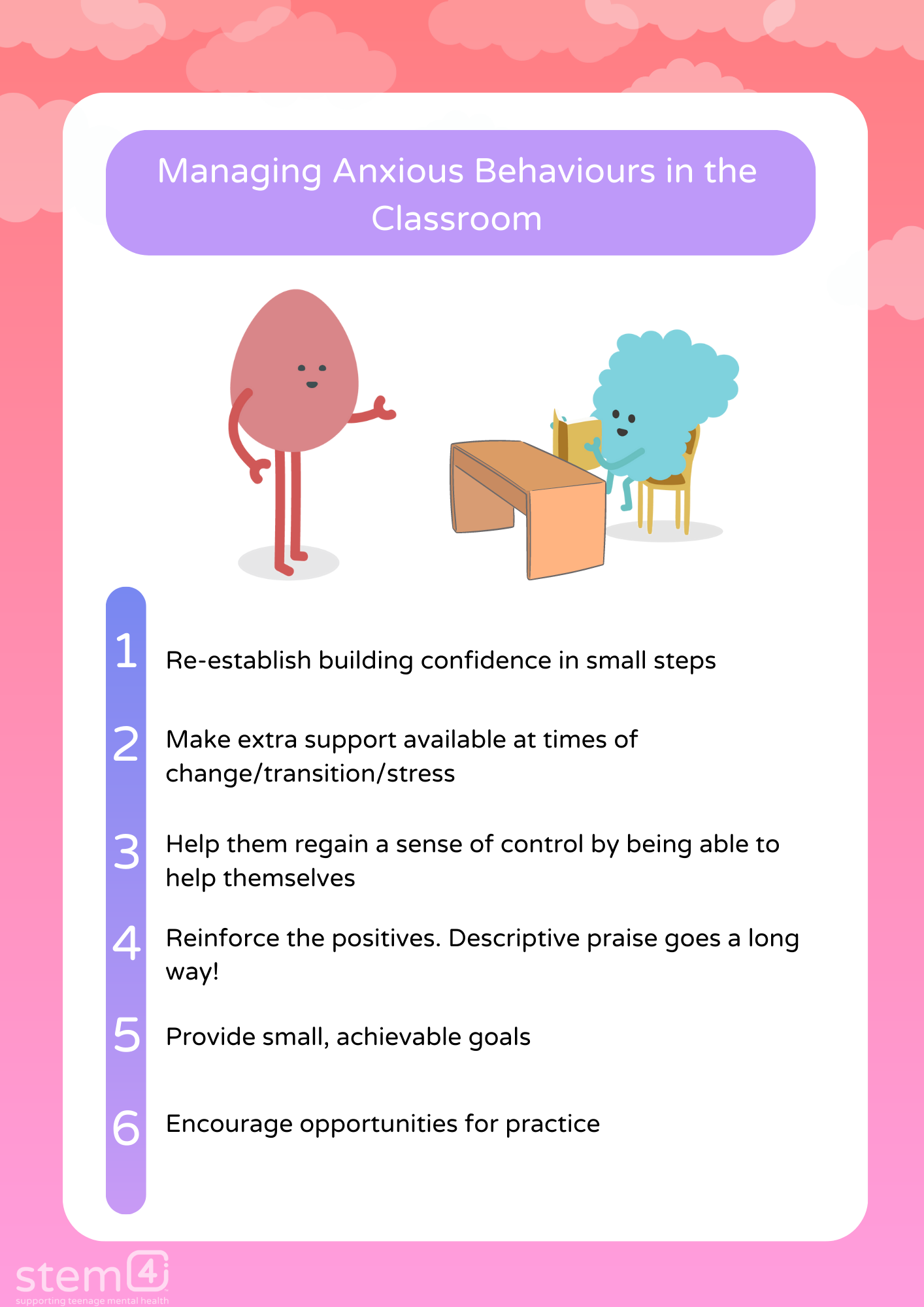Supporting the mental health and wellbeing of students at school and college
At stem4, we partner with schools to provide practical, evidence-based mental health support for students, teachers, and families. Our resources are designed to help young people build resilience through learning to manage anxiety, low mood, stress, and other mental health challenges, while equipping staff, parents and carers with practical information and easy-to-use tools that fit seamlessly into both the school day and home life.
Anxiety
For schools
Teachers are well placed to notice the changes caused by anxiety, which will be picked up through their understanding of a student’s responses.
Teachers, depending on their relationship with the student, are also more likely to be a probable first port of call either by the student concerned or, more often, by their friends.


Anxiety is probably the most common problem that teachers encounter.
This may present as anxiety about being at school through to school refusal, separation anxiety, anxiety over friendships, exam anxiety, avoidance of eating at school, fear of getting things wrong and many others depending on the age of the child.
Having a supportive conversation with the student, inviting the family for discussion and requesting they set up an assessment with their GP by a certain time with feedback to the school, as well as agreeing a management plan at school can be very beneficial.
Four facts in four areas
What can schools do?
Four suggestions for change:
- Include talks on anxiety within the PSHE curriculum and also offer teacher training and support
- Have a clear and effective system to support a student who presents with an anxiety disorder
- Allocate a named teacher and peer supporter from a core team of trained staff to be available should help be needed
- Establish links with local services and know what the referral pathways are. Get a professional to help assess and make recommendations.
Clear Fear
 The Clear Fear app provides ways for children and young people to manage anxiety. Developed by Dr Nihara Krause, a Consultant Clinical Psychologist, together with ideas from young people, Clear Fear uses a Cognitive Behavioural Therapy (CBT) framework to help change anxious thoughts and emotions, alter anxious behaviours and calm fear responses.
The Clear Fear app provides ways for children and young people to manage anxiety. Developed by Dr Nihara Krause, a Consultant Clinical Psychologist, together with ideas from young people, Clear Fear uses a Cognitive Behavioural Therapy (CBT) framework to help change anxious thoughts and emotions, alter anxious behaviours and calm fear responses.
The app also has helpful descriptions of the different ways in which anxiety shows, resources and a ‘grit box’ to boost resilience. It is recommended for the ages of 11-19 years but can be used by a younger group with the support of a parent/carer.
Clear Fear compliments, but does not substitute for the assessment and ongoing support of a mental health professional.
For further information on the app visit the Clear Fear website.
Available on the App Store and Google Play.
Children and young people can feel anxious about going to school or college for many reasons. Sometimes the anxiety that’s felt can be so high that it can get in the way of going to school or college at all. This is called Emotionally Based School Non-Attendance (EBSNA) – find out more about EBSNA here.
Visit our Further Advice page for details of other organisations that can help.
At stem4, we don’t just provide hope
Last year alone:
of children and young people reported
that our apps helped reduce their
mental health symptoms
of applicable users said their need
for professional support had reduced


